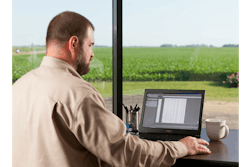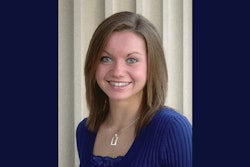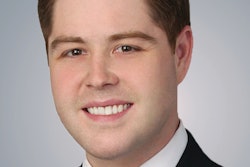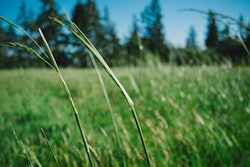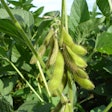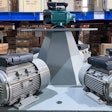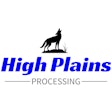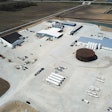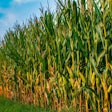The following essay earned Colin Hurd a $2,500 scholarship from Feed Energy Company for its 2012 “Excellence in Ag” Scholarship Program.
Agricultural technology has changed the industry beyond what many of us could have imagined. Its relatively brief history has created value in areas that we did not even know existed 20 years ago. Remote data capture is one of the most paradigm shifts happening today, offering producers the ability to measure and manage. The potential for technology and the future of agriculture appear necessarily dependent on each other, not only from an efficiency and management standpoint but more importantly from a sustainability standpoint. For a company with a proven track record and a history of strong leadership, such as Feed Energy, will technology be the key to future success? It will inevitably be a cornerstone of it. If effectively utilized, technology can give a long-term competitive advantage through providing increased product quality and safety, less environmental impact, more satisfied customers and suppliers, and long-term sustainability.
Feed Energy is in a very competitive industry. Many producers view feed products as a commodity. Therefore, it is imperative that the company continues to set itself apart from the competition and maintain the level of quality that cannot be found elsewhere in the marketplace. As the industry strives to compete with Feed Energy, how can the ongoing development and application of technology ensure the highest quality product for the future? It must include using technology in ways which the competition does not or has not. A company must be a leader constantly adapting, searching and utilizing capabilities offered by technological change. Companies must continuously ask what are we able to do today that we could not do yesterday because of increased technological capabilities. Perhaps an even better approach is to ask, "what do we want to do tomorrow and how can we develop the technology to do it?"
An example of technology which exists today and is being developed for tomorrow is soil moisture and nutrient management. It could allow Feed Energy to ensure exceptional product quality and safety before a product even exists. By remotely monitoring probes that measure moisture and nitrogen levels within supplier’s soils, Feed Energy could ensure producers are doing everything possible to grow the highest quality product. By knowing, understanding and responding to the environmental variables of nitrogen and moisture, Feed Energy suppliers could have the capabilities to produce products in a quality class of their own!
Using the previous example of soil moisture monitoring technology that will soon have the capability to monitor nitrogen levels in the soil, consider the environmental benefits. Nitrogen leaching is the leading form of pollution in Iowa and has significant long term impact on our environment. What if all Feed Energy suppliers only applied the necessary amount of nitrogen for plant uptake and none in excess? This would offer another opportunity to gain a competitive advantage while protecting our natural resources. As an ethical company, this example shows how Feed Energy could further increase its environmental responsibility through the use of technology and leave a better world for those to come.
Continuing with the previous example of moisture monitoring as a developing technology, consider the impact it can have on suppliers. The technology could allow Feed Energy’s suppliers to grow a product with the constant information necessary for meeting quality specifications. If suppliers were able to control a key environmental variable such nitrogen levels they will be able to cut costs while reducing the risk of their product not meeting quality standards. Customers of Feed Energy can also benefit from this increased quality standards. It will give them valuable peace of mind to know their feed additives are quality controlled from furrow to their farm. This is a great example of how technology can be used to provide benefit for all parties which is the best insurance that a company will have long-term sustainability.
Sustainability must be the underlying focus of any first class company. How that sustainability comes about is a result of many choices made with strong focus from exceptional leadership. The choice to include a pursuit of technological advancement and development in a business model can contribute to the long term sustainability of a company. With the simple example of technology used previously it is evident that it can be applied in ways that benefit the environment, suppliers, customers and the company. Making decisions that benefit all parties is what brings about desired long-term sustainability. The use of technology has great potential to do this, but it can only be as beneficial as a company is committed to making it.
Can Feed Energy stand to benefit from technological innovation and adaptation? Absolutely, and so can its suppliers, customers, and the environment. It seems that Feed Energy’s proven history and leadership gives testament to future success, success where technological advancement will be a determining part of the overall equation. Soil moisture sensing is a technology that will and already has created change in agriculture and the feed industry. The potential for technology is only starting to be realized, proven companies that will adapt can create a competitive advantage through operating in a class where all parties benefit.
Colin Hurd attends Iowa State University where he is majoring in Agricultural Studies with a minor in General Business and has maintained a 4.0 GPA. He is a member of the Gamma Sigma Delta Agriculture Honor Society, a member of the Alpha Gamma Rho Fraternity and is a Cardinal Key Honorary Member. Colin has also served as a coordinator for the annual Iowa State Blood Drive and was a member of the VEISHEA planning committee. He has interned for the VanWall Group and Cargill Ag Horizons. Colin was raised in Roland, IA.


